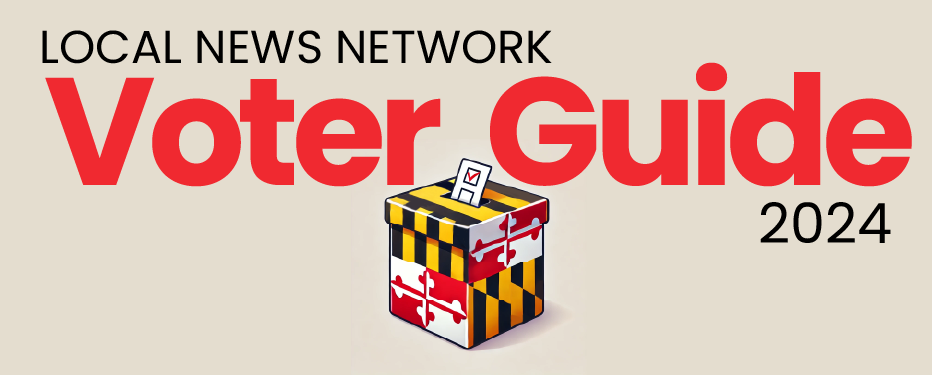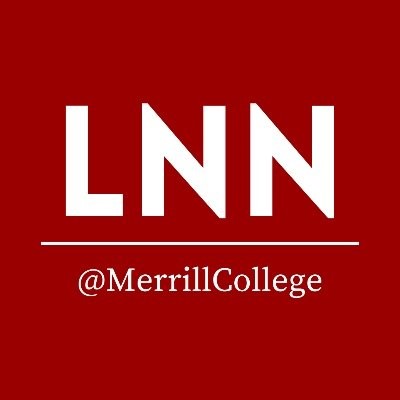Jen Mallo
Running for school board in Howard County District 4
How old will you be on Election Day (Nov. 5)?
55
Are you currently employed? If so, where, and what is your job title?
Howard County Board of Education chairperson and member.
What is the highest level of education that you completed, and where did you get that degree?
Master of arts, the George Washington University; certificate in education finance, Georgetown University, McCourt School of Public Policy.
Why are you running for the school board?
I am running for the Howard County Board of Education because I believe in the mission and goals of public education and can make a positive contribution to that mission. As an adult, I have been a lifelong public servant — starting with my time with the Department of Defense as a civilian analyst, through years of volunteering in support of education, to my six years serving on the Board of Education. I have been able to make real, measurable change that has improved the lives and outcomes for thousands of students.
My knowledge base includes an advanced certificate in education finance from Georgetown University, a master’s degree in East Asian studies, a bachelor’s degree in economics and East Asian studies, training in data analytics, as well as work in early childhood education, literacy, and reading acquisition.
My work has led to strong functional relationships with every elected official in Howard County both at the county and state level. These relationships are key to navigating the difficult challenges in county and state funding, local and state legislation, as well as fostering positive interactions within these partnerships.
In summary, I am running because I can make our education system better for all children in Howard County schools.
What makes you a good candidate for the board?
I have the experience, expertise, knowledge base and temperament to be a highly effective board member. Not everyone will agree with all of my policy decisions or actions, but I am known for my ability to craft solutions, move things forward and get to consensus during difficult deliberations. Being able to make tough decisions as well as compromise are the hallmarks of my tenure as a good board member.
I will not need on the job training necessary to govern competently. The newly appointed superintendent, who is still learning the job, needs support and guidance from skilled, knowledgeable and experienced board members — I am that candidate. I have expert-level knowledge on school system policy as well as state-level education legislation from my years on the board and my advocacy work prior to being elected.
I have values and priorities that align with our community. As someone whose children went to Swansfield Elementary School, Harper’s Choice Middle School and Wilde Lake High School, I bring the perspective of high needs schools to our discussions.
My work in education spans nearly 30 years and includes being a parent-teacher association president, secretary, grants writer, science fair coordinator, project manager for cultural arts and literacy programs, Community Advisory Council president, president and administrator for East Columbia Preschool, founder of Parents At Home (a nonprofit), Blessings in a Backpack coordinator (feeding food insecure youth). This body of work in education — preschool through adult education — should not be underestimated in its value to Howard County Public School System students and staff.
What is the most important issue facing your school board and what would you do about it if elected?
The most pressing issue of the next four years will be recovery from the pandemic. This is complex because its effect was felt by students, families and educators — personally and operationally. Identifying how students suffered and determining how to make up the gaps will be the underlying driver for our education system in the near term.
An additional complication arising in part from the pandemic was the thinning of the employment pool for educators and other employees. There are simply not enough educators available for hire, and universities are not producing sufficient qualified graduates to meet the demand. I will work on developing an array of incentives to retain educators. This could include financial incentives for working in high-needs schools, working in special education classrooms and becoming a nationally board certified teacher. We also need to work with our county funding partners for student loan forgiveness, affordable housing set-asides for educators and other innovations. Human Resources will also need to widen the recruiting pool outside of the local area to include Historically Black Colleges and Universities with robust teacher training programs.
Another area where we will begin to feel the lasting impact is financially with the drying up of the pandemic relief funds. Federal relief funds were able to supplement our budget for technology, tutoring, summer programming pay raises, enhanced localized ventilation units (portable HEPA units) and some capital projects. Absent new revenue streams, Howard County Public School System will be hard pressed to absorb continued costs into our operating budget.
Please name a public leader you admire and explain why.
“Nevertheless she persisted” has been an important motto to me ever since it was uttered about Elizabeth Warren by Mitch McConnell when the United States Senate prevented her from speaking during the confirmation hearings of then-Sen. Jeff Sessions as U.S. attorney general. I admire her for continuing on despite the men around her trying to silence her. She is representative of the many women who have had to fight for their voice to be heard. Sen. Warren remained steadfast despite the discrimination that she was subjected to while male senators were able to do what she was stopped from doing. I admire her fortitude, her aptitude and her persistence.
The Blueprint for Maryland’s Future, passed by the General Assembly in 2021, is a 10-year plan that includes increased education funding to support early childhood education, increased teacher starting pay, college/career-readiness standards for high school graduates, and expanded services to multilingual and impoverished families, among other goals. Please tell us your views on the Blueprint and how it will affect your school district.
I fully support the goals of the Blueprint for Maryland’s Future. It has the ability to improve educational outcomes for students, to ensure our educators are paid professional wages, to solidify mental health services in our schools, and more. It will provide near universal pre-kindergarten in partnership with private providers. Universal pre-kindergarten is the single most effective tool for improving student outcomes for historically underserved populations.
The college/career/community ready standards will continue to make sure that our students are leaving high school ready to embark on the next part of their life with high chances for success. Our commitment to have students ready to go into a trade or the military needs to be as strong as that of our commitment to have students ready to succeed in college.
If we can fully implement the Blueprint, the Howard County Public School System should be able to see increases in reading and math proficiency, increased graduation rates, increased rates of students in apprenticeships, more students completing career training pathways, more students being dually enrolled in college classes during high school, improved student mental health outcomes and improved teacher recruitment and retention.
Some school districts nationwide are placing new limits on the use of cellphones in middle and high schools. What do you think should be the policy on student use of cellphones in your district, and why do you support that policy?
I believe that cellphones need to be out of the classrooms. Our teachers can either teach or police cellphones, but they cannot do both. Simply put, many of our students (and many adults) are addicted to their cellphones. They cannot be present and ready to learn with a cellphone on their lap or desk distracting them. We need to provide structure and set restrictions to support them.
Evidence is mounting that in emergency situations in schools, cellphone use by students can make them less safe by increasing the traffic load on the network — possibly overloading it, by circulating rumors that make it difficult to address the real emergency and by texting parents who then flock to the school, which may get in the way of public safety officials and potentially putting parents into the zone of harm.
Are you satisfied with your school district's efforts to ensure the safety of its students? What, if anything, should be done to improve school safety in your district?
The school system needs to continue to install secure vestibules in every school, modernize all camera systems, ensure all external doors are secured and locked, and ensure all radio communications are easily connected with law enforcement. If we remove cell phones from the classrooms, we need to ensure that all classrooms have functioning landlines for teachers to connect with the administration, security personnel and families to be able to get messages to students.
In terms of students’ interactions with other students, we need to continue to provide mental health supports in schools, teach social-emotional learning, and educate students on how to interact with peers in a respectful and healthy way. When we encounter fights among students, we need to find the root causes and address them as well as administer appropriate consequences.
Do you think there are circumstances when books should be removed from school libraries? If so, what kind of books should be removed, and who should make those decisions?
I place great confidence in our professional media center staff. Books that are not age-appropriate generally do not enter the libraries in the first place. Subject matter experts (school media specialists, librarians, educators) should be trusted to approve appropriate material for placement in libraries. In the case where books are challenged, it is the subject matter experts whose opinion I value since they have been trained in determining age appropriateness and appropriate content for inclusion given their knowledge of the curriculum and educational standards.
Further, a diverse and inclusive set of library books are critical to have in our schools. We need to actively work to include these materials despite extremist fear mongering and demands for removal. I support the inclusion of books that are LGBTQ affirming, historically accurate, and do not whitewash past racism, sexism, violence, misogyny and discrimination.
Some school districts enact policies allowing transgender and gender nonconforming students to use their preferred pronouns while at the same time not informing those students' parents about that decision. What is your opinion of such policies?
School districts should absolutely and without reservation enact policies to fully support transgender and nonconforming students and to allow them to use preferred names and pronouns regardless of their parents’ views and support. I do not believe the school district should be required to share these preferred names or pronouns with parents when requested not to by the student. Studies show that having one supportive adult in a transgender or nonconforming student’s life can decrease the risk of suicide.
If we can save lives by using preferred pronouns and names, then it is incumbent on us to do so. It is not only a good thing to do, but also the right thing to do.
I am an LGBTQ ally.


